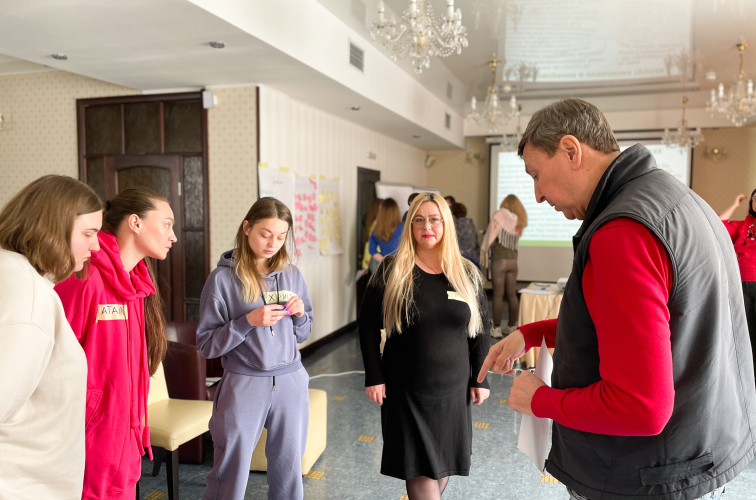Journey of Resilience: The new training course on Psychological Support of People suffered from war
The news has been published: 10.04.2023

The first part of the training course on psychological support for people suffered from war took place on April 6-9 in Kyiv. This training was designed for practicing psychologists, staff of psychological centers, representatives of civil and humanitarian organizations involved in the mental recovery of individuals affected by military conflicts.
The primary goal of this part of the course was to study the key principles of providing psychosocial assistance in emergency and crisis situations. More than 30 psychologists attended the training and participated in interesting and productive discussions. During the training, the guidelines and principles of the Inter-Agency Standing Committee (IASC), founded in 1992 by United Nations General Assembly Resolution 46/182 were reviewed. The IASC aims to strengthen coordination in the field of humanitarian assistance and is the main mechanism for inter-agency decision-making in response to emergencies and crisis situations.
Participants gained valuable knowledge, which they consolidated during practical exercises, sharing their own experiences in mobilizing communities during war. In addition to theoretical education, trainers encouraged participants to actively interact and communicate, facilitating the exchange of experiences and effective group work.
One of the key topics discussed was the mobilization of a community to support those affected. Participants explored what types of human resources could be mobilized to provide assistance in a community, including medical workers, social workers, psychologists, volunteers, and other professionals ready to help in difficult situations. Important discussions also focused on the problems and difficulties that may be encountered in this process, such as lack of resources, insufficient coordination between organizations, and difficulties in interacting with ordinary community structures, which can complicate the mobilization process.
Significant attention was also paid to factors that can influence different levels of community participation. These may include socio-economic factors, political conditions, religious aspects, and other factors that affect community engagement in the support and recovery process. Participants worked in groups where they developed approaches to working with communities in emergency situations, meeting the population's needs for psychological, social, and medical support. This allowed participants to enrich their experience and gain new ideas and approaches to working with people affected by military actions.
Participants are eagerly awaiting the next part of the training course, which will take place in a few weeks. Concluding the first part, it can be noted that this was an important and valuable event that contributed to the professional development of psychologists and specialists working in the field of mental recovery of people affected by war. According to participants, such trainings are necessary to improve the quality of psychological support, and understanding the basic principles of providing psychosocial assistance in emergency situations and crises, as well as familiarity with the guidelines and principles of the Inter-Agency Standing Committee, allows professionals to have a clear understanding of the role and mechanisms of coordination of assistance during crisis situations.
The event was held in the frames of the "Peace Building and Conflict Resolution in Ukraine – Step Forward" project, implemented with the support of the German Federal Foreign Office’s funds by IFA (Institut für Auslandsbeziehungen), Funding programme zivik.
Read our other news
We bring together people with an active civic position
Join our team!
